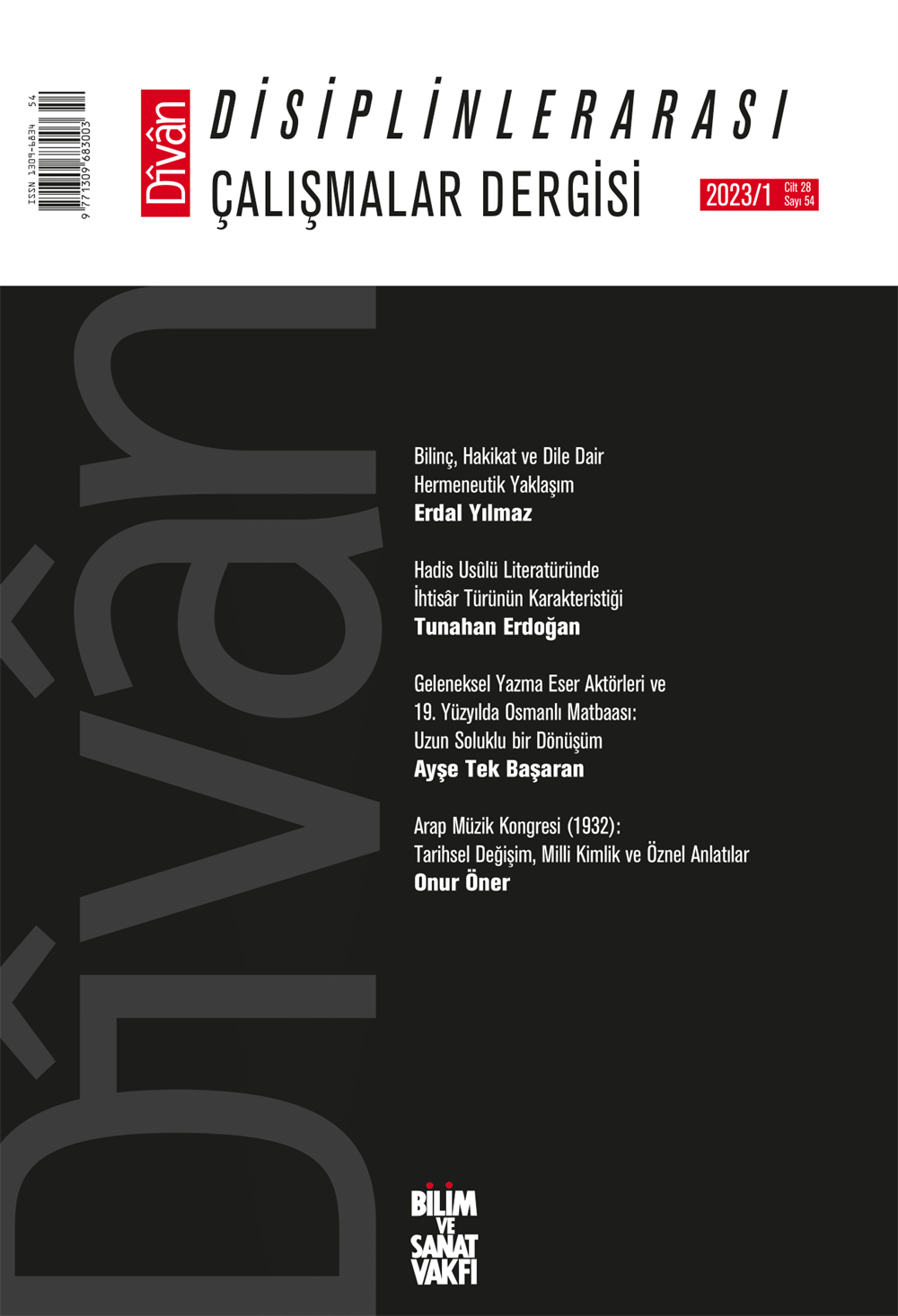Journal of Interdisciplinary Studies Issue 54
Articles
In this study, I examine the hermeneutic approach to consciousness, truth, and language. Based on the hermeneutic approach, it is claimed that consciousness is the consciousness of something, rather than a disengaged entity that connects with others when necessary. It is also claimed that truth is not a correspondence between reality and its linguistic expression assumed by the classical correspondence theory, that this is a layer of the basic truth, and that truth is actually an event. Finally, it is argued that language is more than just a tool for communication; it is also a structure that carries meaning and thus determines both consciousness and understanding of truth.
Erdal YILMAZThe study is based on the hypothesis that the type of abbreviation does not only contain the purpose of shortening and summary, and focuses on the concepts that support this hypothesis. Another issue dealt with in the study is the determination of the issues that the authors of the summary do not want to have in their works in terms of the copyright style and purpose of the genre. These are also classified under the following headings: dispositions that will distort or change the meaning, lengthening the text unnecessarily, shortening the text excessively, adding unnecessary and empty words, repetition. It is also necessary to focus on the extent to which the authors have successfully applied the aforementioned issues in their works. The study presents a critical approach to the idea that the search for novelty in the field of copyright in Islamic sciences came to an end, the imitation mentality became widespread, and the works of repetition were produced, especially in the Islamic fifth century and later.
Tunahan ERDOĞANThis paper focuses on their role in the Imperial Press to reveal how the know-how of these actors was critical for the transition to the new Ottoman cultural medium of print. It further suggests that as these actors adapted and carried their skills to that medium, they themselves were influenced by the new technology of the press, and the novel ways of relating to the written word that came with it, in a profound way, with significant implications for the nature of scholarship and the shape of the scholarly career track during the period.
Ayşe BAŞARANThis study analyzes the Congress of Arab Music, held in Cairo in 1932, in parallel to the political and social developments that Egypt has undergone since World War I. Egyptian music is one of the representations of the modern Egyptian identity, and Egyptianism, Egyptian nationalism, and Pan- Arabism in circulation during the interwar years were the modes of thought behind the restructuring of Egyptian music. The study proposes to evaluate the Congress days from the perspective of the ideological and conceptual debates, which are also the determining dynamics of the Congress of Arab Music.
Onur ÖNER





